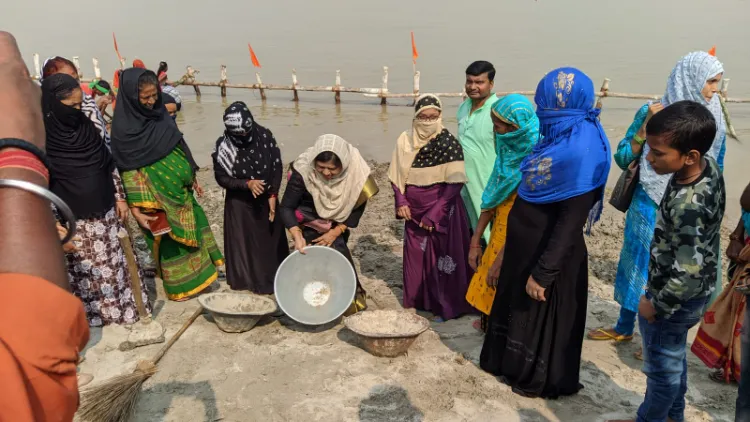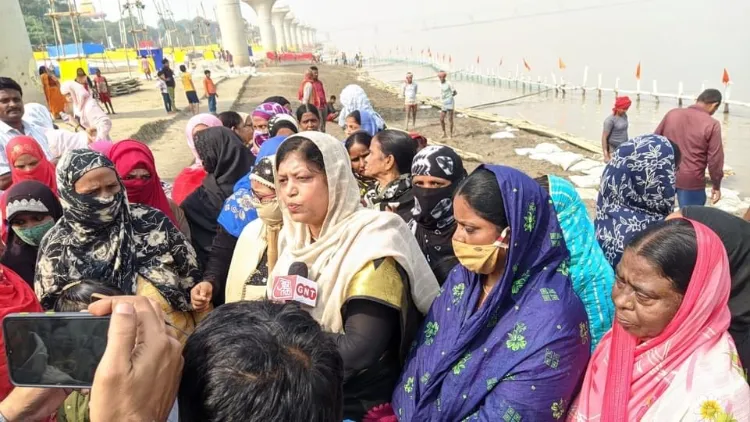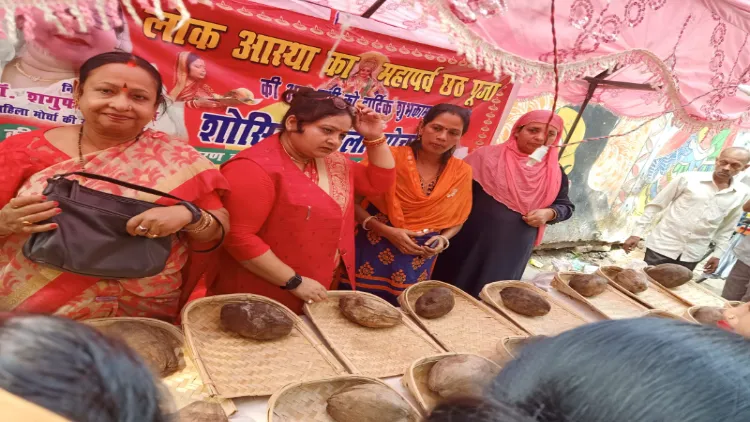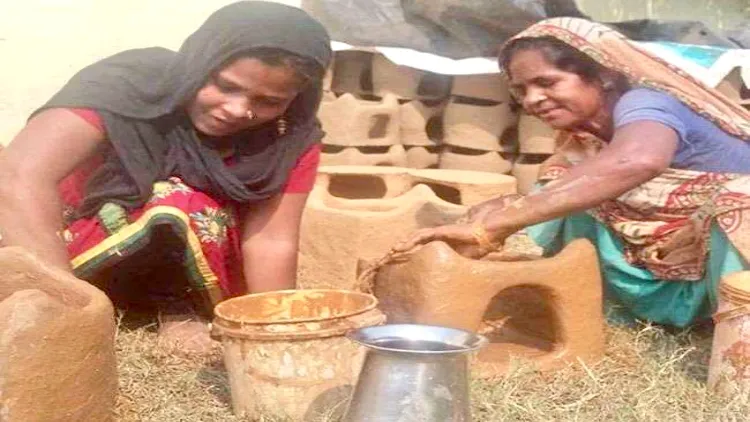
Seraj Anwar / Patna
Festivals always bring people closer. This adage is being played out on the banks of the Ganga in Patna as groups of Muslim women – some even wearing burqa and therefore identifiable – were seen cleaning the ghats to prepare the place for Chhath, the most celebrated of State’s festivals.
Strictly speaking, Chhath is a Hindu festival in which women offer bounties that grow on the land because of the solar energy as a thanksgiving to Sun God. However, it’s also a cultural festival in which all people participate in one way or the other.
The four-day festival began on Tuesday with nahay-dhoye, the day of cleaning the home and ritualistic bathing by the lady of the House, who presides over all the rituals, in preparation for the main festival day also saw Muslim women looking excited.
On Wednesday falls Kharna when the women leading the prayers would offer all the crops to the Sun as it'S setting. The next morning, the celebration concludes with the lady of the house offering prayers to the rising sun.

Dr Mumtaz Jahan with volunteers
As it’s a public festival, Muslims also associate themselves with the cultural aspects of the festival and play their role enthusiastically.
Organizations of Muslim women have made mud chullahs while others cleaned up the ghats for the devotees to offer prayers to the Sun. Muslim women are distributing Chhath materials used in the prayers offering the best image of inclusive India and cultural and religious diversity-cum-unity of India.
In Patna City, young and old educated Muslim women from well-off families have been cleaning the ghats for 20 years. The scene of women with broom, spade, and garbage collection pans (tasla) raid the Ganga ghats and start working is the ultimate scene of harmony.
This year too, these women carried out a cleanliness drive on various ghats and access roads of Patna City. Keeping in mind the convenience of the devotees and devotees, former Patna Municipal Corporation councilor Dr. Mumtaz Jahan led the cleanliness driver. She swept the roads and collected garbage by starting from Dulighat and moving on to Naujarghat, Sidhi Ghat, Colony Ghat, Adarsh Ghat, Mitanghat, etc.

Women's organisation selling Chhath wares
The ghats are used for prayers and offerings to Sun God. About a hundred women, including In which Munni Khatoon, Rukhsana Khatoon, Ruby Khatoon, Ishrat Bano, Shakeela Bano, Hamida Begum, Nazneen, Ifat, Tarnum's participated in the cleanliness drive.
The tradition of Muslims proactively participating in the celebration of the Chhath was started by Dr Mumtaz Jahan, who hails Gaya and has shifted to Patna after her marriage.
Holding a broom in her hand, Mumtaz Jahan leads the women in cleaning the ghats. Her husband Mohammad Javed is her biggest supporter. Mumtaz says initially Muslim women did not get much support.
Dr. Mumtaz Jahan Muslim women’s participation in Chhath is a symbol of Hindu-Muslim unity. We aim to promote religious tolerance and communal harmony.
She says her campaign is a befitting reply for hate mongers and those who want to divide people along religious lines. Mumtaz Jahan has been a councilor from this area for three consecutive terms.The Chhath being a women-led festival has a lot of symbolism as regards women’s empowerment.
Though traditionally Muslim men would sell the materials required for the prayers, now women have taken over their role. An organization Shoshit Mahila Morcha had set up a stall near the NIIT to sell the materials this time.
Shagufta Parveen, President of the Morcha, and Yasmin Khatoon, Ginni Khatoon, Ruhi Khatoon were receiving those coming to the Ghat for prayers. The women’s group has organized refreshments for devotes on the last day of the festival.

Women making mud stoves in Patna
Shagufta Parveen, who comes from the famous Hakim Itwari’s family, had formed this group two years ago.
.
Shagufta says that Chhath is a festival of faith. “If our efforts strengthen Hindu-Muslim unity, then what is the harm? We should celebrate the festival together. Along with this, one should wish for happiness, peace, happiness, and harmony.”
Muslim women have prepared earthen chullahs on which the food is to be prepared. They follow all the rules of purity in making the chullahs
The women start preparing the chullahs much in advance of the festival.
They attach great sanctity in its making since it is not just an item for the Chhath but also a symbol of harmony.Mustakima Khatoon, who is busy making earthen stoves on Virchand Patel Path, says that she has been making earthen stoves for the past several years.
She follows a lot of rules while making these. She does not consume meat and fish till the stove is ready and always prepared these after taking a bath.
Last year, the production of the stove was reduced due to corona infection. This time it is expected that the sale of the stove will be fine.
